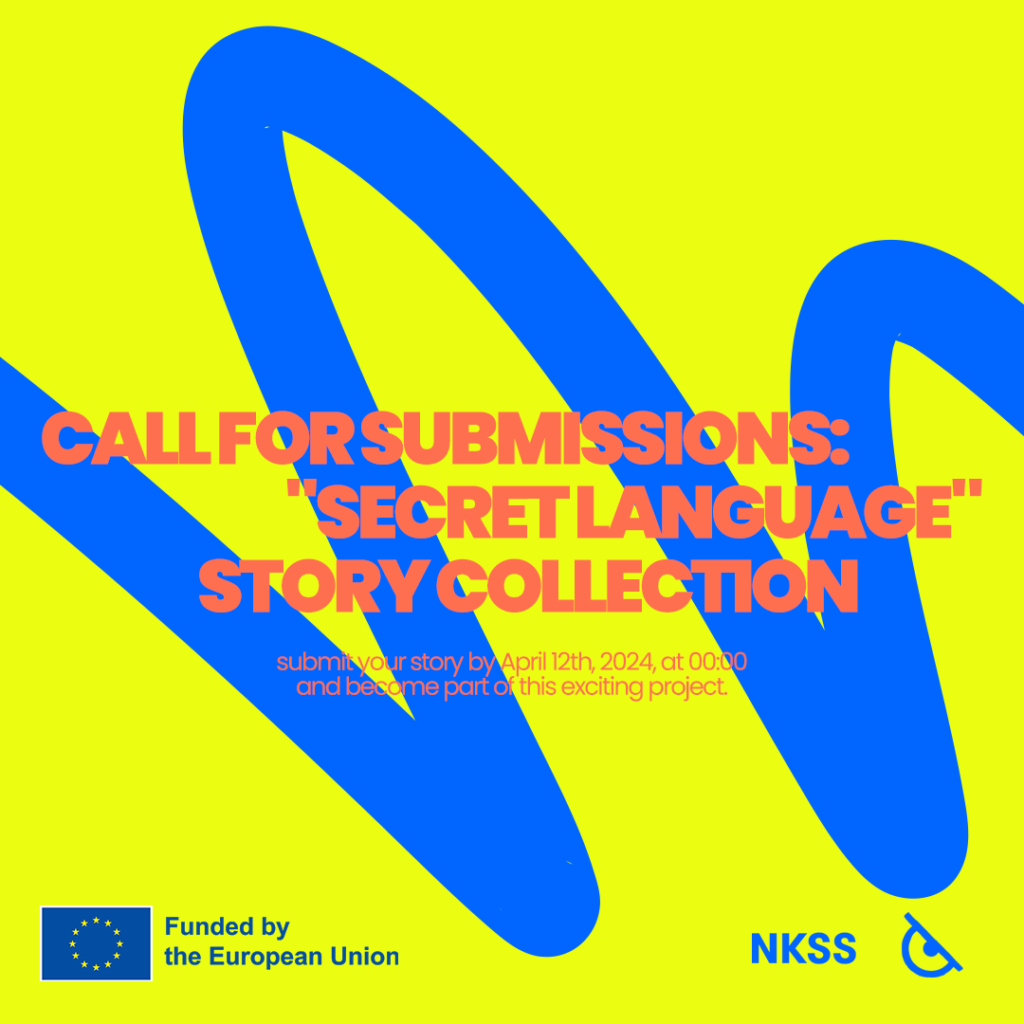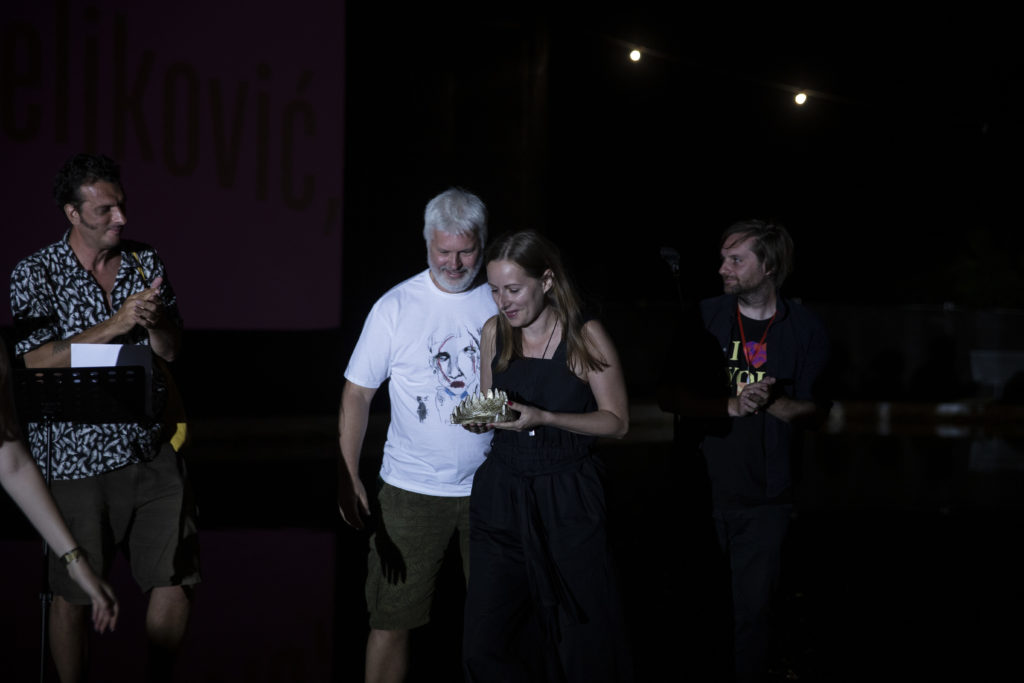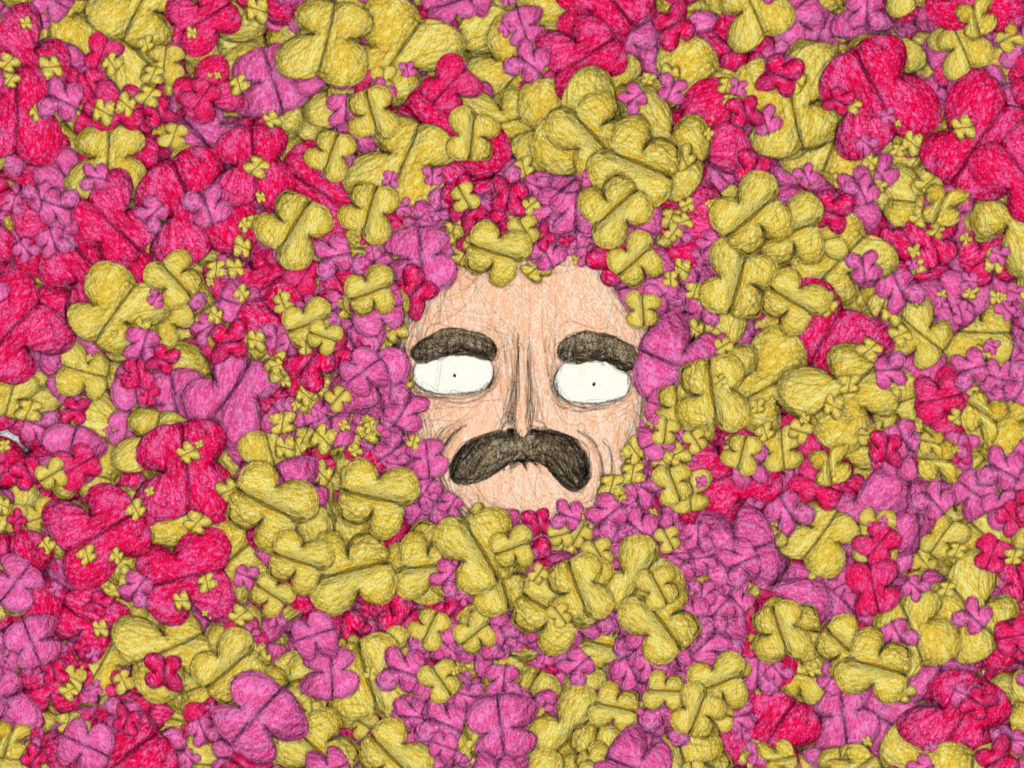Eroll Gashi: Student Category III

Eroll Gashi
“The Storm”
In the Student Competition Category, several films that laconically address various aspects and problems of human life are unfolded. The film “The Storm” (original: La Tempête) by Astrid Guinet, reveals the marital drama of a woman left by her husband. At the kitchen table, the man suddenly drops his spoon and runs outside, leaving the young woman under the torment of loneliness and social pressure, which manifests itself in the form of her mother’s conservative discourse. The whole film is permeated with details that warn of the storm. Although the voice of the conservative mother warns her how dangerous freedom is, the girl leaves the house that imposes suffering and pressure on her and appears liberated having fun among the girls. The author mixes these moments of liberation with the image of a wandering in the mountains, a touch that shows the freedom of the girl according to the worldview of the conservative mother, for whom the freedom of the girl is nothing but a mountain full of dangers and unknowns.
“Entropia”
The film “Entropia” by the Hungarian artist, Fliara Anna Buda, is permeated by a vivid play of bright colors and a soundtrack with dystopian motifs. The film has three women as characters, in three parallel social environments. Female sexuality permeates the appearance of the characters. The first woman appears in the wild, where she out on a deer hunt. The second woman appears in an environment in today’s world, which the film presents with consumerist motives. In a dystopian setting appears the third woman, who is confined to a room, the walls of which are screens showing birds flying as the woman runs on a running track. This parallelism at some point breaks down. Gradually all three women end up in the same place, where they explode into a passionate sexual relationship.
“Umbilical”
It can be said that gender emancipation is one of the main political battles of this century. This political battle is also represented in the art of this century. Chinese-American director Danski Tang’s film “Umbilical” accompanies the dialogue between a Chinese mother and her lesbian daughter with meaningful animations. The dialogue contains powerful stories from the mother, who talks about her life with a violent husband in a society that burdened women with a heavier encumbrance starting from their sex life to their marriage and society, as well as from the daughter, who is raised in a girls’ dormitory where she experienced bullying and discovered her sexual orientation was contrary to the moral norms of society.
“In Orbit”
An important element in people’s lives is also the trauma that remains from certain life events and the sense of guilt they emboss on the individual. A group of French students address this aspect in the futuristic film “In Orbit”. At a futuristic space station, Sonia, the film’s main character, along with career advancement, experiences the trauma and guilt of losing her friend in an accident outside the space station. Alongside the festive reality of the station, her mind constantly produces images that remind her of the gruesome event. The words of her colleague, who constantly urges her to look ahead, represent the helpless consolation of the individual who chooses to remain faithful to the mental creations of trauma.
“Sola“
Hungarian director Zoltán Debreczeni’s film “Sola” gives another perspective on the traumatic experience of the workplace. In a cluttered office, a young woman faces her issues and her peers’ bullying for a lump in her head. The dichotomy between the developments of the lump in her mind is masterfully highlighted, where it becomes a world in itself, while in reality it remains the same until it disappears. All that remains is her traumatic memory, which remains as a photograph, which presents the bump as a person in the young woman’s vital memory.
“GNT“
Social media is often also considered as producing nothing from nothingness. The film “GNT” by directors Sara Hirner and Rosemary Vasquez-Brown, shows this perspective masterfully in the presentation of their character, Glen, who is a girl with ambitions to ‘explode’ on social media. Glen enters the world of the hashtag “#thrush” and emerges from it as a survivor in a silly doctor’s show. The lack of any significant story from this survival, is compensated by the launch of a product, something that is very present on social media
“Helfer”
The surrealist film “Helfer”, directed by Anna Szöllösi, deals with a woman who faces anxiety and the horror of feeling drowned in her sleep. She appears before a man, who is alluded to as a man offering help to get out of such a state. In the meantime, the woman asks him for immortality, he offers her a convenient way out of the situation. The whole part is played in a water-dominated surreal game. According to the director, real people played the film, before being animated. The animation colors are chosen to resemble drawings in Chinese-style porcelain vases. Mental states are also portrayed in an interesting way by the film “Our Sleeping” by the director, Ászity Boglárka, where the sleeping habits of her family are revealed. The narrative that reveals the fears and sleeping habits of the family members, is accompanied by scenes and indicators of this story.

Eroll Gashi biography:
Eroll Gashi is a political scientist. He completed his Bachelor studies in political science at the University of Prishtina and continues his interdisciplinary studies MA at the University of Siegen in Germany with a focus on historical and contemporary perspectives on Political Culture and social inequality. He was an activist and co-founder of the Student Political Club in Prishtina.
-The opinions, findings, and conclusions or recommendations expressed herein are those of the Author(s) and do not necessarily reflect those of the Anibar Festival





